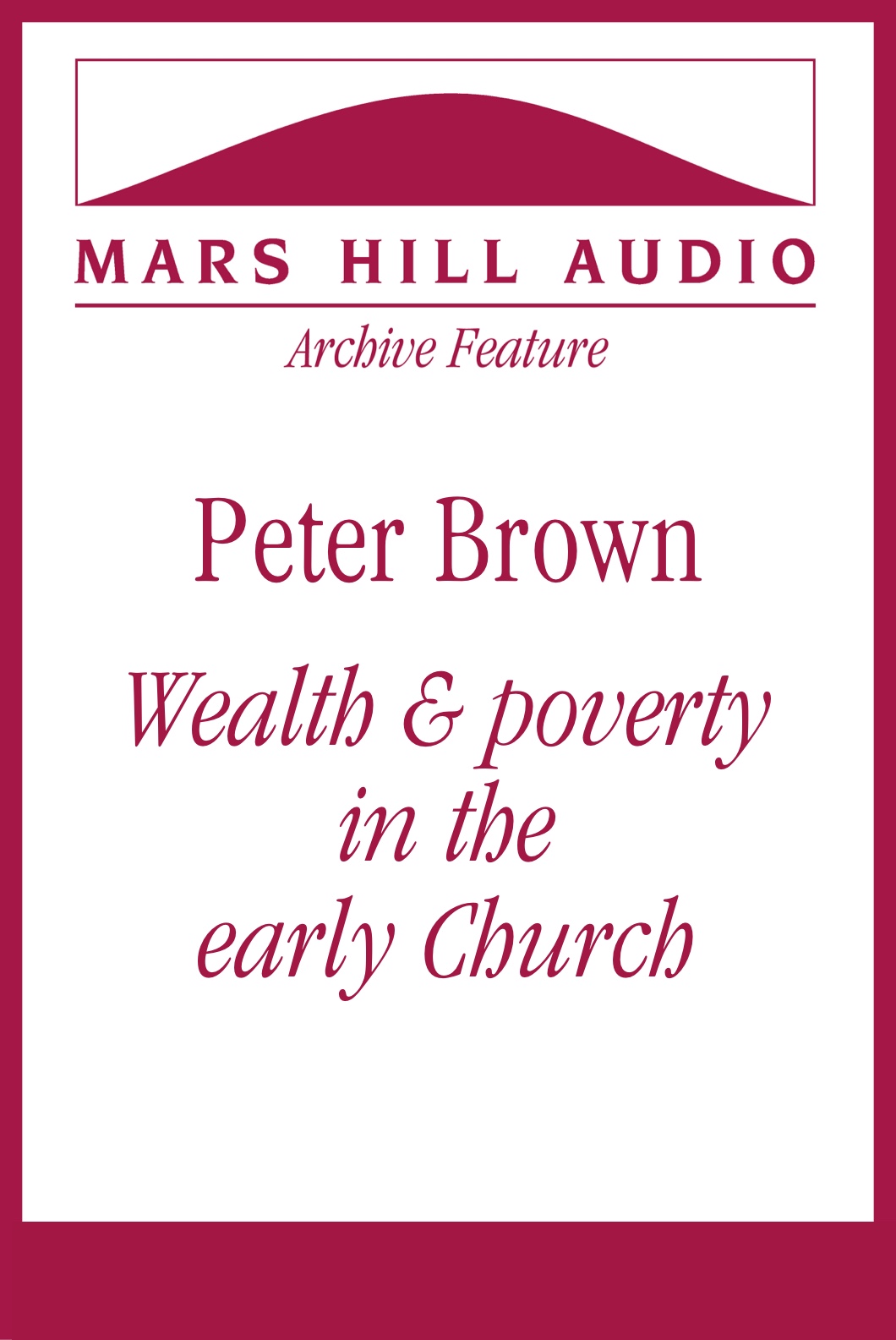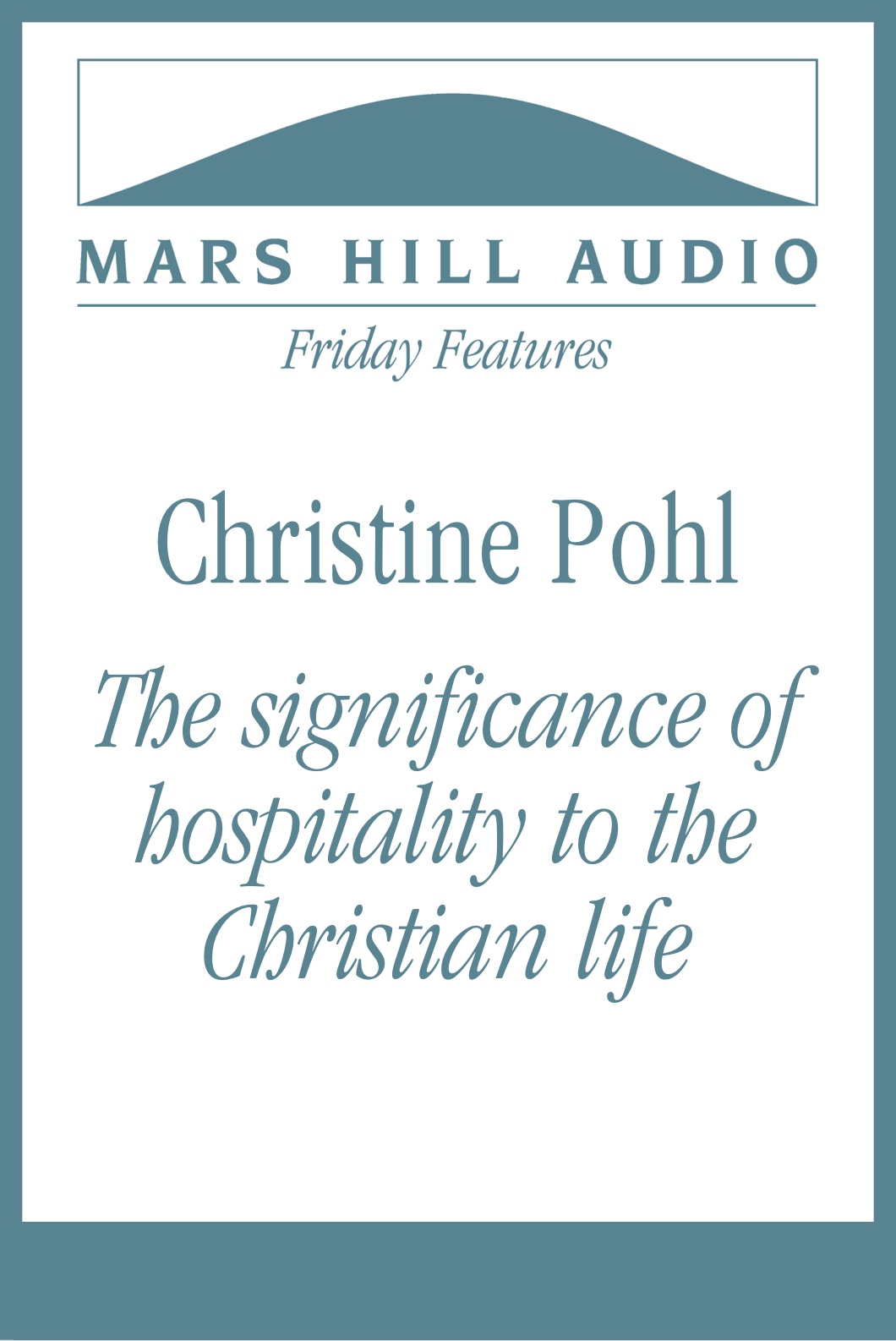originally published 9/2/2013
Historian Peter Brown explains that in spite of having had access for centuries to the Church fathers’ numerous writings, only recently have we come to understand the social and material context within which they lived. The debate about wealth and poverty, which was once considered primarily theological, can now be seen as worked out among the less educated lay people. Brown describes how the remnants of small churches from ancient times were mostly lost next to the splendor of the gothic cathedrals. Because of their rediscovery through excavation, we are able now to study the life of the average Christian: what the Church was doing for the poor, and the consequences in the lives of the rich. Brown discusses Augustine’s teachings regarding the integration of the wealthy into the Church, and seeks to correct the mistaken assumption that spectacular renunciations were seen by the Church fathers as the only way to gain God’s grace. Brown instead argues that the greatest and steadiest almsgiving was often done by wealthy, who didn’t give up everything yet took seriously the responsibility of almsgiving. He reminds us of Augustine’s teaching that “you give to the poor because you recognize that you yourself are poor” and that rich and poor alike are mutually dependent on God’s mercy.
18 minutes
PREVIEW
The player for the full version of this Feature is only available to current members. If you have an active membership, log in here. If you’d like to become a member — with access to all our audio programs — sign up here.
More to hear . . .
Two interviews with Christian Pohl are presented in this Feature. In a 1999 conversation, Pohl talks about her book Making Room: Recovering Hospitality as a Christian Tradition (Eerdmans). Then she discusses her 2012 book Living into Community: Cultivating Practices That Sustain Us (Eerdmans).
This feature is available to listeners with a Mars Hill Audio membership.
Related reading and listening
- Seeing Creation Anew: The Life & Poetry of Gerard Manley Hopkins — Dana Gioia examines Gerard Manley Hopkins‘s poetic genius and dedication to Christ in spite of his personal trials and difficult cultural context. (55 minutes)
- Economics and personhood — FROM VOL. 147 Mary Hirschfeld argues that modern economics makes some fundamental assumptions about personhood, material goods, and God that prevent the development of a truly human understanding of economic life. (20 minutes)
- The theological significance of current events — FROM VOL. 65 George Marsden discusses how Jonathan Edwards (1703–1758) understood world history and the American experience. (14 minutes)
- Were Christian martyrs considered suicides? — FROM VOL. 36 Darrel Amundsen counters the modern myth that the early Church up until St. Augustine was accepting and even favorable of suicide. (12 minutes)
- Mars Hill Audio Journal, Volume 163 — FEATURED GUESTS: Andrew Youngblood, R. J. Snell, Nicholas Denysenko, Nigel Biggar, Robert McNamara, and David Cayley
- Cleansing sea breezes — Thomas C. Oden argues that rather than being conformed to contemporary ideological trends, we should be informed by 2000 years of the Church’s wisdom. And Darrell Amundsen corrects some false claims about the early Church’s views on suicide. (27 minutes)
- We feebly struggle, they in glory shine — Church historian Robert Wilken describes how the early Church’s witness about the nature of truth challenged the assumptions of the surrounding culture. (15 minutes)
- Welcoming one another — Christine Pohl describes the practice of hospitality in Church history and the particular challenges to hospitality we face in our era. (30 minutes)
- Religious pluralism & the calling of Christian intellectuals — From our archives, Robert Wilken talks about religious pluralism in Christian history, and Robert Jenson discusses his essay on the calling of Christian intellectuals. (25 minutes)
- The Cross in artistic expression — Richard Viladesau examines how the Passion of the Christ has been depicted artistically and aesthetically throughout Church history. (21 minutes)
- History of the Church in 100 objects — The Cave of the Nativity, the Holy Grail, and the Wittenberg Door: all objects representing a chapter in the history of the Church. (16 minutes)
- Mars Hill Audio Journal, Volume 124 — FEATURED GUESTS:
John Fea, Robert F. Rea, John C. Pinheiro, R. J. Snell, Duncan G. Stroik, Kate Tamarkin, and Fiona Hughes
- Mars Hill Audio Journal, Volume 118 — FEATURED GUESTS: Gilbert Meilaender, Ron Highfield, Mark Mitchell, Daniel M. Bell, Jr., Helen Rhee, and Peter Brown
- Mars Hill Audio Journal, Volume 102 — FEATURED GUESTS: Daniel M. Bell, Jr., Lew Daly, Adam K. Webb, Stratford Caldecott, James Matthew Wilson, and Thomas Hibbs
- Mars Hill Audio Journal, Volume 88 — FEATURED GUESTS: Diana Pavlov Glyer, Michael J. Lewis, Steve Talbott, Darryl Tippens, Everett Ferguson, Alexander Lingas, and Calvin Stapert
- Mars Hill Audio Journal, Volume 79 — FEATURED GUESTS: Carson Holloway, Peter Augustine Lawler, Hadley Arkes, Ben Witherington, III, Christopher Shannon, and Roger Lundin
- Sources of Ancient Wisdom — Excerpts from two books about pre-modern Christian understanding: Reading Scripture with the Church Fathers, by Christopher A. Hall, and Retrieving the Tradition and Renewing Evangelicalism: A Primer for Suspicious Protestants, by D. H. Williams. (95 minutes)

